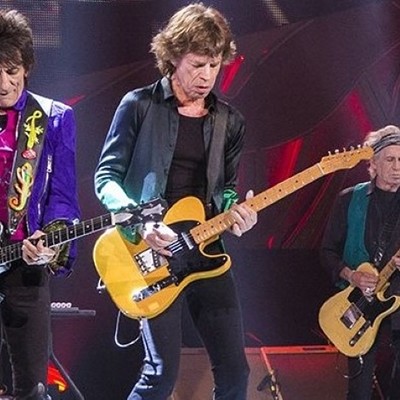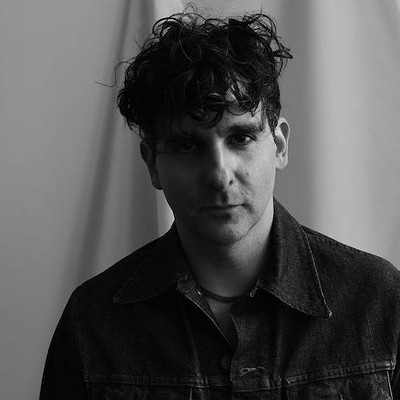For many, Florida is the land of humidity-boiled punk, mostly epitomized by the fabled roster of No Idea Records (from Assholeparade, Less Than Jake and A Wilhelm Scream to Against Me! and Hot Water Music); earlier iconoclastic waves including the Eat, Gay Cowboys in Bondage, and Maggot Sandwich; or rare legendary venues like Tampa's 403 Chaos.
Bob Suren tends to embody an even more vitriol-lined side of the state. His label Burrito Records, much-cherished distro Sound Idea, and own tumultuous bands like Failure Face (named after a Charlie Brown strip) and Murder-Suicide Pact mapped out the American hardcore subgroup splinters that took hold even as punk often became little more than vapid Hot Topic fare in the post-Green Day void.
After years struggling to keep his work afloat and his music ever-meaningful, he closed up shop, dropped the scene like a dirty sock, headed to international lands, scoured for happiness, and now finds himself in Texas "redefining his comfort zone."
He's exchanged battered microphones, dank and claustrophobic basement gigs, and chaotic stages for a semi-reclusive life as a budding poet, actor and author, including the much-awaited Crate Digger: An Obsession with Punk Records, his upcoming tell-all memoir unveiling a life in the trenches of "record-collector scum," as Poison Idea might joke.
The Press' David Ensminger recently tracked Suren down to discuss underground music, the book, and a new sense of life blossoming in his post-vinyl era.
Houston Press: Not long ago, you purged your life of punk rock, took a long trip to Central America, and moved to a new city to reinvent yourself. How did such distancing or breaking away allow you a fresh perspective on your music-based life otherwise difficult to achieve while in the midst of it? Bob Suren: It was a difficult thing to do, but I think it was a good move. I was in Central America for half a year and never talked to anyone about punk. It forced me to find other things to talk about and other things to think about. I also listened to very little punk there. I had a strange rule: in the house, I could only listen to Miles Davis. It was the first thing I listened to as I unpacked, and it felt right.
Good thing I had 26 Miles Davis albums on my computer. It gave me a lot to absorb. What if I had picked Weird Al Yankovic? I only have six Weird Al albums, and listening to nothing but him for six months might have made me go nuts. Seriously, only Miles inside. If I wanted to listen to anything else, I went outside.
Outside I would listen to a lot of jazz, classic rock, and sometimes a little Gang of Four or Buzzcocks. But punk rock got put way on the back burner, and it felt nice, like giving your body a break after a long, long run. I only met a few people in Central America. Most of them were at the yoga school I found in Jaco, Costa Rica. None of them ever knew my last name. None of them knew anything about my background. We talked, but we talked about other things than punk, and it was refreshing.
Shortly before I went to Central America, I was standing in a parking lot at a gig having one of the five punk-rock conversations that I seem to have every time I go to a show, and I thought, "I'm done with this. I had this same conversation with 200 people over 30 years, and I don't want to have it again. I don't want to spend every Saturday night having my ears blasted and walking to a convenience store for water between bands. What else is there?"
I've been trying to find other avenues for expression. I think I'll find satisfaction in writing and oration. I was taking art lessons in Tampa, and I wasn't great, but I had fun. I'll maybe get back to that. Yoga has been a blast, too. I shut off so much of the rest of the world for 30 years that I missed a lot of good stuff.
For decades, you remained the epitome of DIY (bands, zines, radio shows, label, record distribution),but you chose to run with a Microcosm Press effort, backed by a Kickstarter fund. Why take this route and not DIY, like texts including Going Underground by [George] Hurchalla? I don't know the book world at all. I've learned quite a bit, but I figured just leave it to the experts, and Microcosm knows what they are doing. I want to keep my life simple. I don't want to run a record label or a store anymore, and I sure don't want to learn to run a publishing company at 46. I'll just concentrate on the writing.
Also, it means quite a bit to me that the book is not self-released, no disrespect to George Hurchalla, whom I went to high school with. Having Microcosm back me has been sort of an affirmation that what I did has real value, and I'm not just stroking myself. Microcosm is a small press and has financial limitations. I was a little uncertain about the Kickstarter. I didn't really want to do it because I thought it felt like begging, but the Microcosm people explained it as a way to pre-order the book and get bonus stuff. So in that light, I guess it is cool.
The success of the Kickstarter program means that an additional 3,000 people will get to see the book, and I wrote the book to be seen. I want it available, I don't like collector's items, ironic as that may seem. I like accessibility. In fact, I spent eight months trying to get Crate Digger...published by major book companies, but I got nowhere. I wanted my book in chain stores and libraries and airports. I wrote it to be read as many times as possible.
So, I tried the big publishing houses and literary agents. I got some contacts and some good feedback, but nobody wanted to make the book. I didn't write the book just for punks. I wrote it for everybody. The important stuff in the book is the big stuff, the big ideas, the universal themes. I wrote a lot about success and failure, disappointment, frustration and self-actualization. There are stories about friendship and love and death and heartbreak. That is the meat of the book, and you don't have to know who Black Flag or Varaus is to get that. I wanted to write a book any person on earth could relate to. The music is really just incidental.
"I am a little soured...An obsession with punk rock ruined my life," you told Tuffgnarl.com. No doubt your personal life, including marriage, suffered. Looking back after penning the book, what do you think drives the spirit, core, or even OCD qualities, of collecting -- and does this book serve as a warning sign to others? Until the summer of 1983 when I first heard punk, music was just entertainment. The more I learned about punk, the more it seemed like a subculture with values and a lifestyle. That hit me really hard, and I wanted to be in. Punk was a cause. The goals of the cause, not always clear, but I wanted to be on that side, and I committed myself.
I think I was looking for something to be part of, and this punk rock was a good fit. Punk felt like a big family or maybe the army. I dug that, and I still do. I liked being a foot soldier. I kept thinking of other ways I could be involved and push the cause of punk. That was my teens, twenties and some of my thirties.
In 2003, a friend died at 38, and I started thinking about my own mortality. If I died, would I leave a mark? I don't have kids. My legacy if you want to call that, will be a bunch of records that I put out and a handful or articles. I wanted to make sure my life had meaning, so around 2003, I really started pushing myself harder to produce and be active. And some of that is an ego thing.
In my mid to late thirties, younger people started calling me Mr. Suren without irony, and I started being called a pioneer or a hero or a legend. We are talking very small scale here, but still, it fed me somewhat. I have spent a lot of time from May 2012 to present reevaluating my ego. And now with this book coming out, I am going to get some attention and people are going to say nice things about me, but I'm gonna try really hard to keep myself in check. I do that by looking in the mirror each morning and saying, "You look like shit." I am sort of kidding.
Story continues on the next page.





